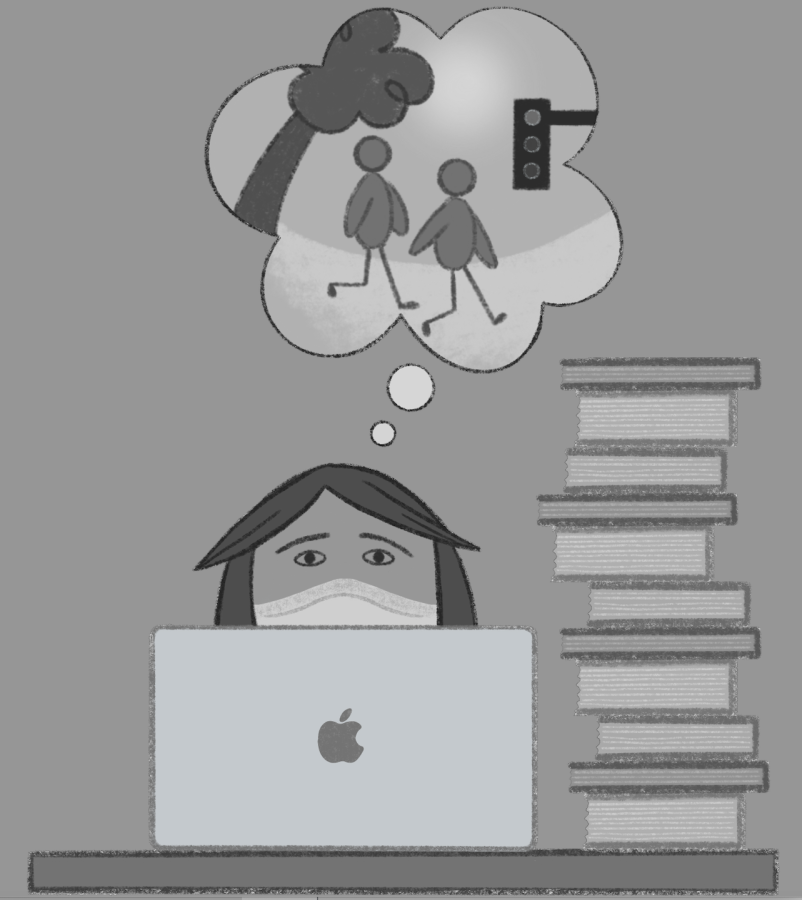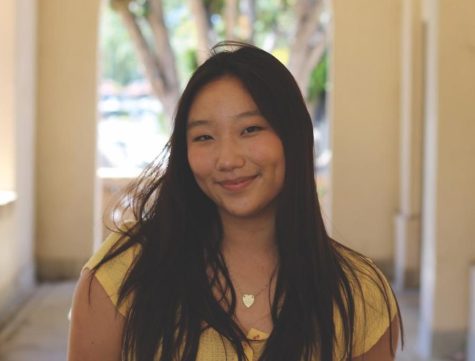In order to comply with state-mandated instructional minutes and in an attempt to reduce unstructured student time, Paly administration has implemented a new study hall system during Advisory.
Under this system, students without Advisory week attend study hall with one of their triad teachers and have a 50-minute period of independent work time. Based on rules from administrators, talking is not allowed during Study Hall, and students cannot use their phones or leave the room to find another teacher. However, based on the first few weeks of Study Hall, each teacher enforces these rules differently.
Assistant Principal Erik Olah said he met with the Gunn scheduling committee prior to the start of the school year to see how they kept track of students during SELF, Gunn’s version of Paly’s Advisory program.
“It’s this evolving process that played itself out over the years and became an issue once we sat back and took a look at our school specifically,” Olah said.
While working to make Gunn and Paly’s systems similar, Olah said changing to a Study Hall was a logical decision when taking into account the school’s main priority –– the safety and discipline of its students, especially those who didn’t have Advisory.
“(Previously), the period was 50 extra free minutes tacked onto lunch, so it really became 90 total minutes of unstructured time,” Olah said. “While a lot of our students hang out in the quad or the library during that time, there were incidents of vandalism, stealing or skipping the last period of the day.”
Olah said the other issue Study Hall solves is Paly’s lack of instructional minutes, the amount of time students are in a face-to-face classroom setting during the school year. The state of California requires 64,800 minutes, with a recommended buffer of 500 minutes.
“If you have half of the school not in class, then that technically doesn’t count for instructional minutes,” Olah said. “With our old schedule, we would lose all of our buffer, and be 400 minutes short after that, which is not a small amount.”
Olah said if state auditors assess Paly’s schedule and find it is not meeting the required instructional minutes the school could be forced to add more days to the year, delaying summer break.
“A lot of the time, we are under a microscope as a school here in Palo Alto,” Olah said. “Auditors have looked at our schedule at least twice in the past few years.”
Most teachers weren’t informed of the decision until the first teacher meeting of the year, two days before classes started.
Teri Baldwin, Executive Board President of the Palo Alto Educators Association, said the teachers’ union was not involved in the decision to implement the Study Hall system.
“I believe some (PAEA) members found out by accessing their schedules during the summer while others heard at the staff meeting on their first day of work,” Baldwin said.
Although teacher advisors are largely unaffected by this change, other teachers now have less prep time compared to last year. However, Baldwin said study hall is not considered a class teachers need to prepare for.
“Teachers are still receiving their contractual amount of prep time, so there is no action to take at this time,” Baldwin said.
So far, students have expressed mixed views on the decision. Junior Austin Krawcyzk said he sees no valuable purpose to Study Hall if students cannot choose their teacher or collaborate with others by meeting up in the same class for a group project.
“It feels like it’s just students sitting in a classroom, so it is the most unproductive way to fill time in school,” Krawcyzk said.
But junior Spencer Wu-Chin said even though he would rather have a longer lunch period, it is an opportunity to be more productive.
“Sometimes, it’s harder to get work done at home, and being at school can be a good motivator,” Wu-Chin said. “Hopefully the system will improve over time; it just seems to be in the works right now.”
Olah said that overall, teachers and students alike have demonstrated their awareness of the situation without excessive complaints.
“This is simply something we need to do,” Olah said. “Even though they may not be crazy about having to do it, I think they understand why.”


